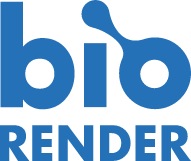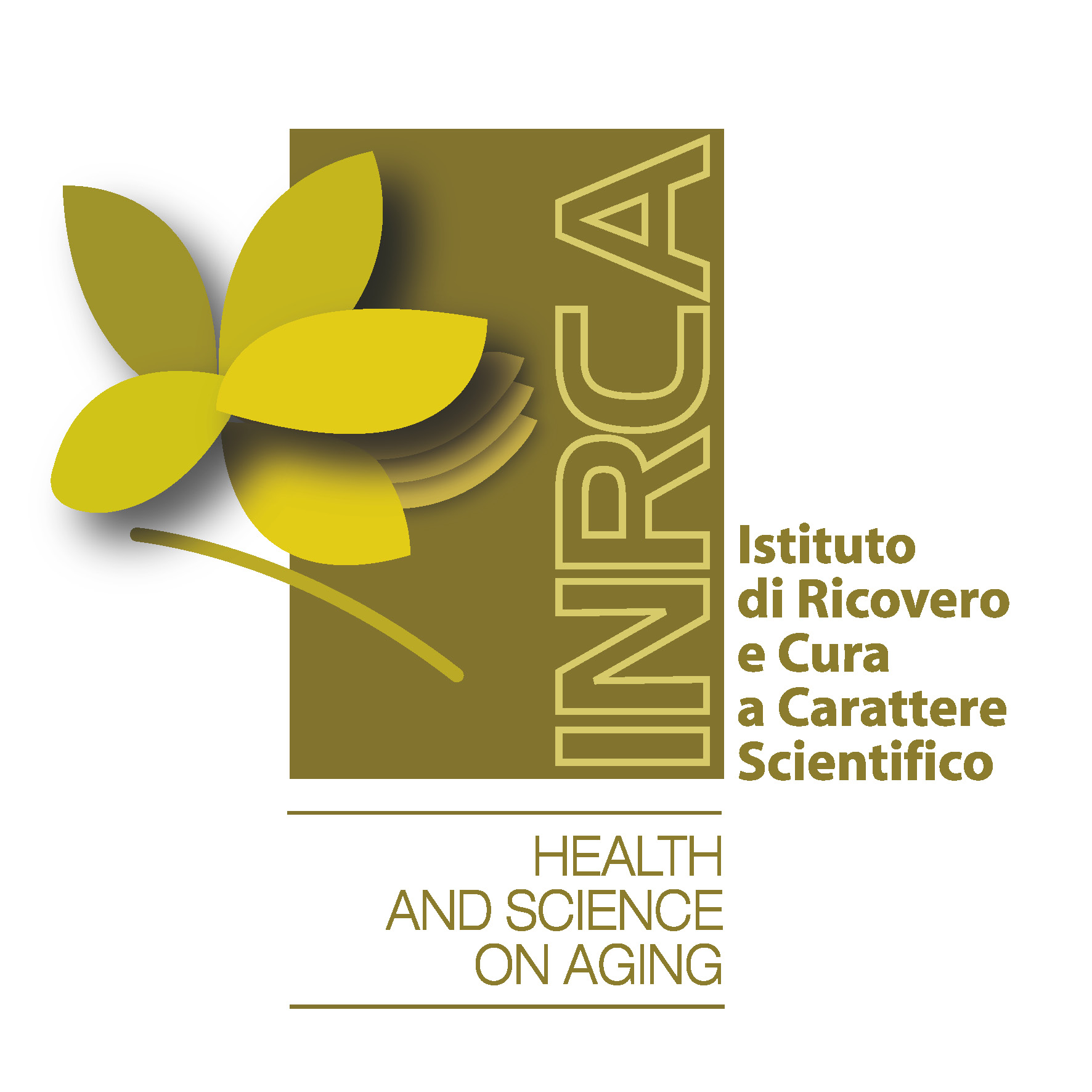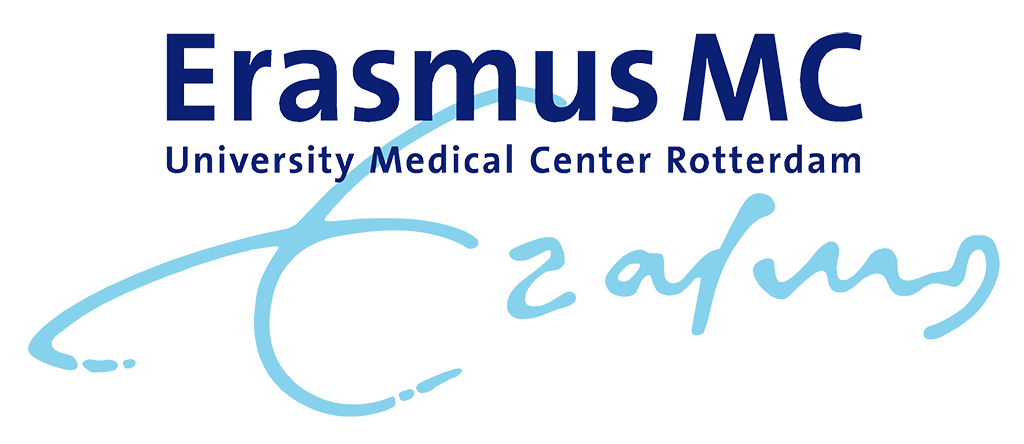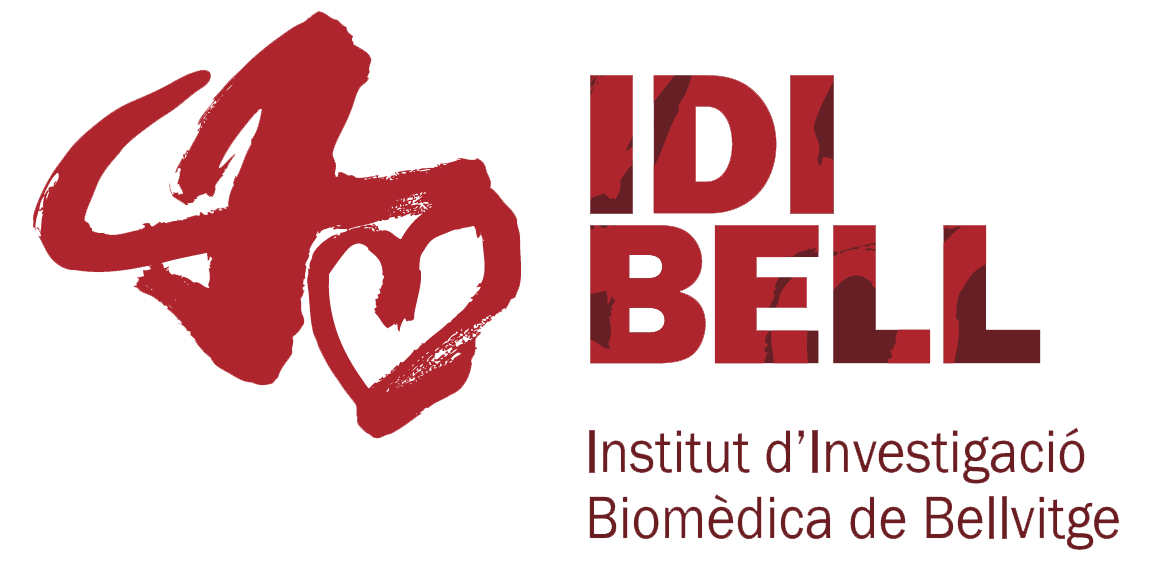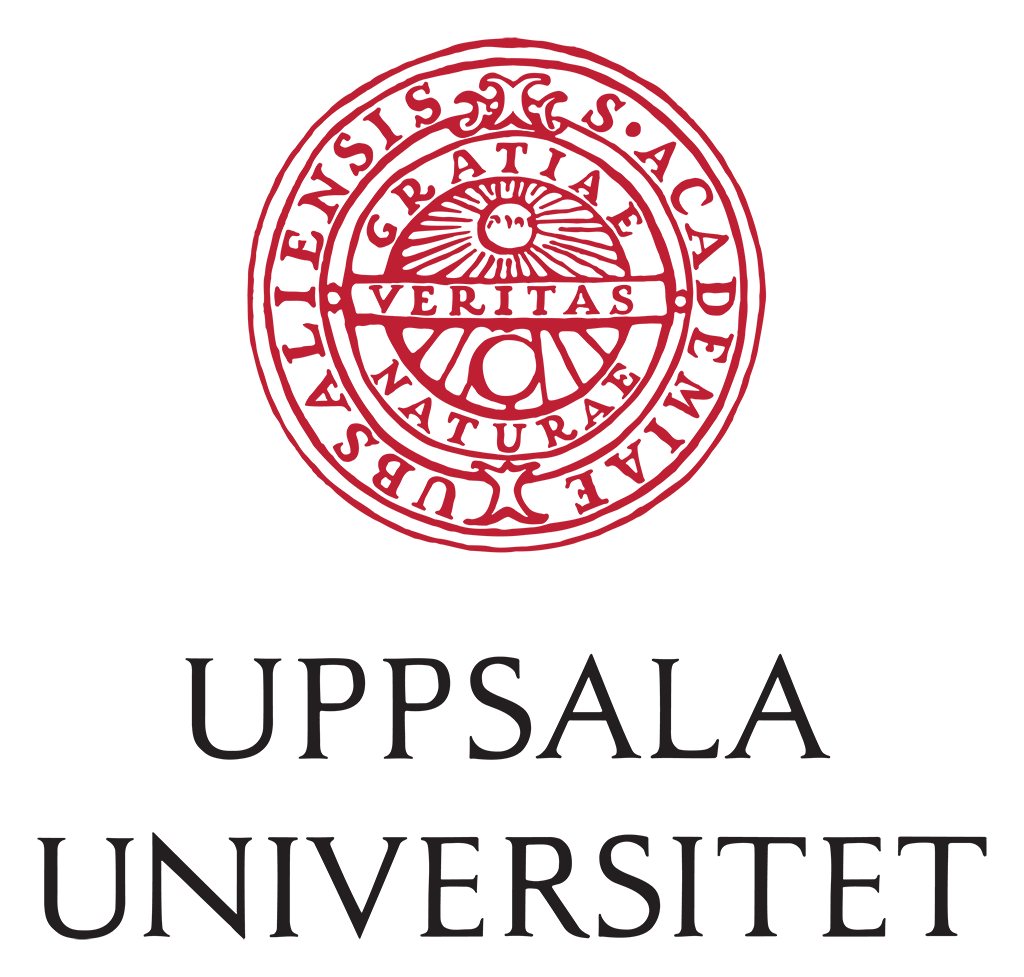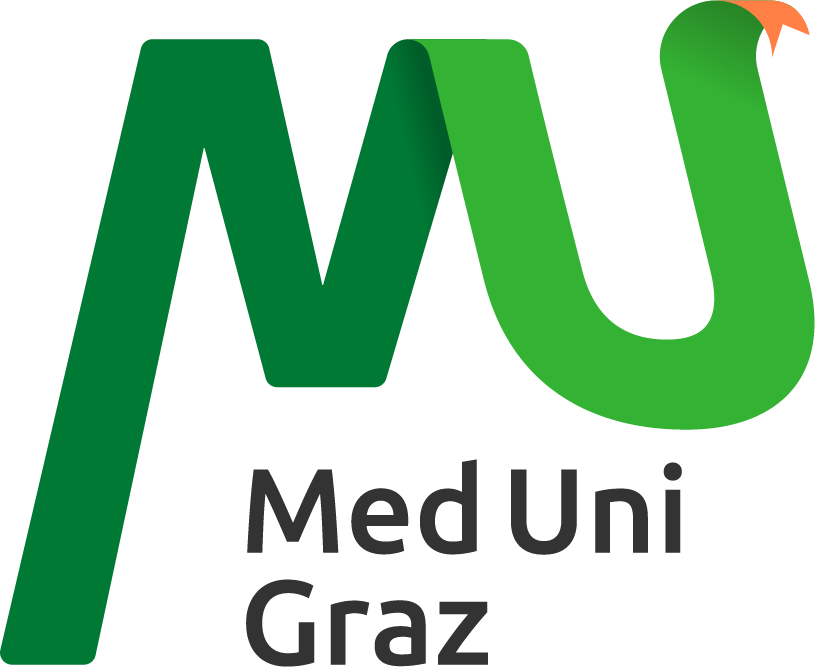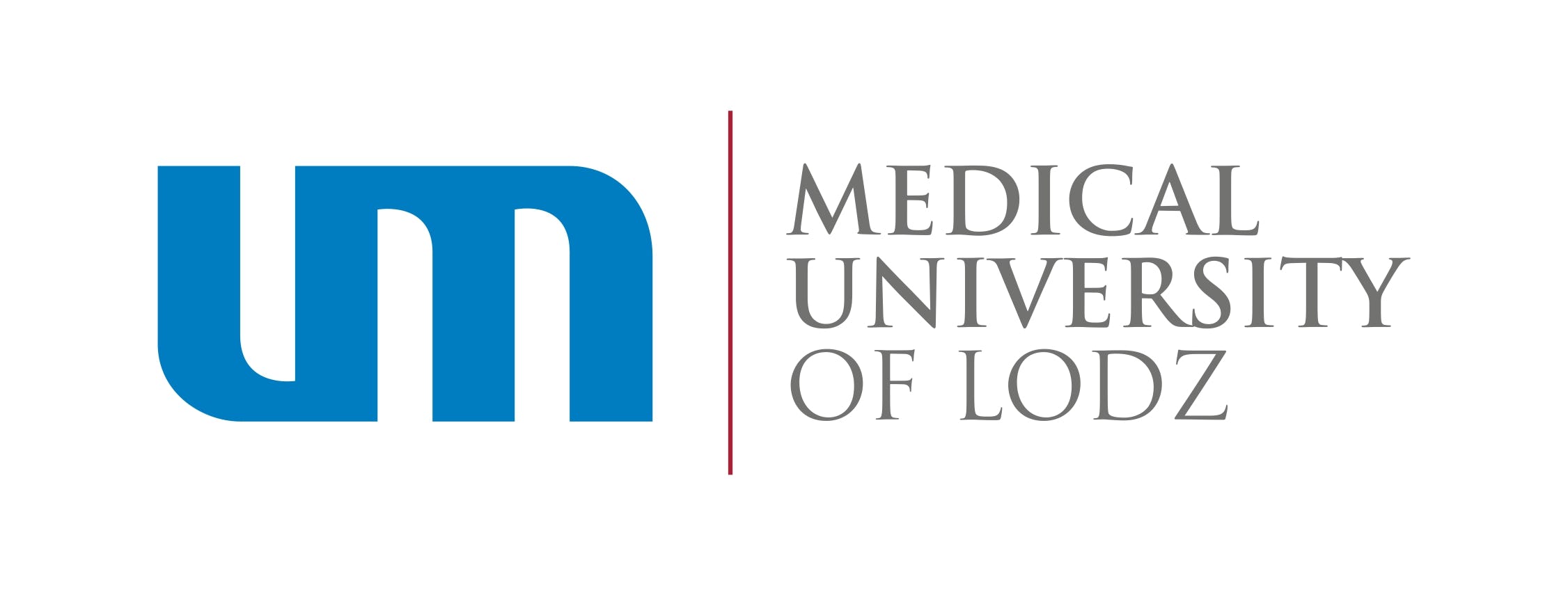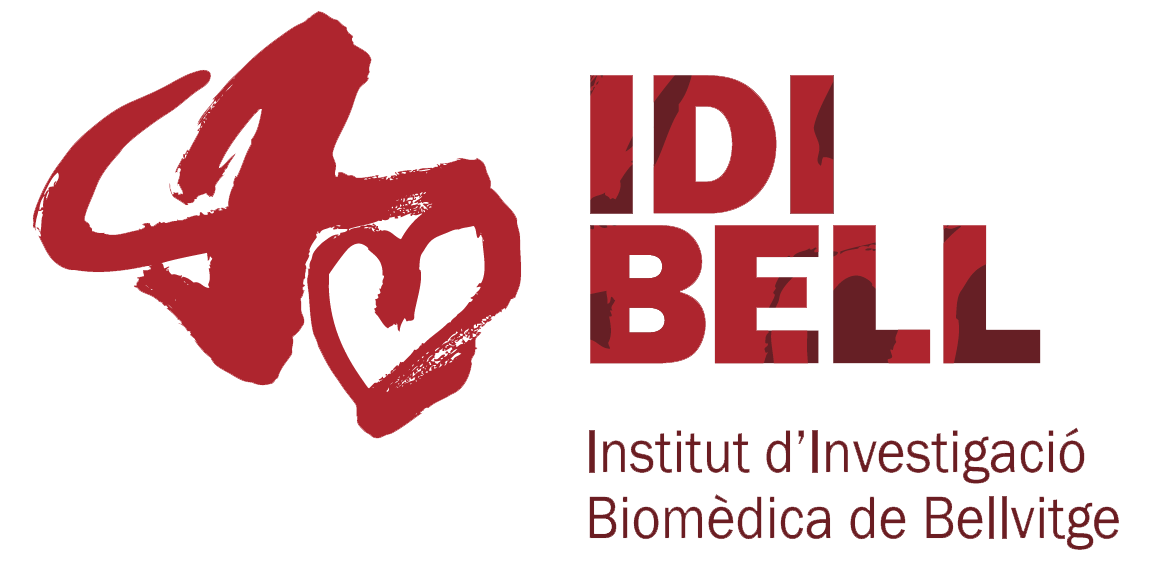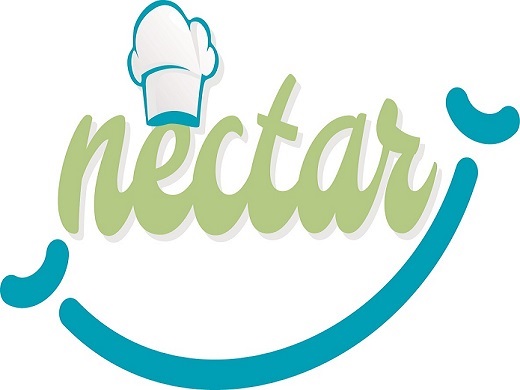
Regina Roller-Wirnsberger werd in 2011 benoemd tot professor voor Geriatrische Geneeskunde en competentiegerichte Curriculaire Ontwikkeling aan de Medische Universiteit
van Graz. Sindsdien is zij betrokken bij verschillende door de EU gefinancierde internationale en nationale samenwerkingsprojecten met een focus op complex zorgmanagement van geriatrische patiënten en het verbeteren van opleidingsmogelijkheden op dit
gebied.
Het consortium van het NECTAR project bestaat uit 12 partners. De logo's van de respectieve partners in de projecten staan hieronder vermeld. Voor meer informatie over de verschillende partners kunt u terecht op de homepages van de aangesloten organisaties of op de homepage van het nectar-project (http://www.nectar-project.eu/).
De bevordering van actief en gezond ouder worden gedurende de gehele levensloop is een essentiële doelstelling van de hedendaagse samenleving. Steeds meer wordt ingezien dat krachtige gezondheidsbevorderingsstrategieën nodig zijn om leeftijdsgebonden ziekten, die op hun beurt de functionaliteit en het zelfstandig leven kunnen aantasten, te voorkomen of uit te stellen. In dit verband is een gezonde, smakelijke en op de behoeften afgestemde voeding een doeltreffende strategie om ondervoeding, sarcopenie en broosheid te bestrijden of uit te stellen, en aldus de levenskwaliteit van de mensen te verbeteren en te voorkomen dat oudere volwassenen ziekten en handicaps oplopen. De kwaliteit, smaak en samenstelling van voedsel beïnvloeden niet alleen de voedingsinname en -consumptie, maar ook de levenskwaliteit van patiënten en ouderen zelf. Vooral in de gezondheids- en sociale zorg moet veel aandacht worden besteed aan factoren zoals de leeftijd van de individuele persoon, ziekte gerelateerde aandoeningen, alsook de kwaliteit, de voedingswaarde en de smaak van het aangeboden voedsel, om adequate voeding voor patiënten te garanderen. Bijgevolg moeten de aangeboden maaltijden voldoen aan kwaliteitsnormen en voorzien in individuele voedingsbehoeften, waarbij rekening wordt gehouden met voedingsvoorkeuren en individuele problemen bij de voedselinname.
Gezien de toenemende relevantie van het beroep van chef-kok in deze context en met name voor het toekomstige voedingszorgteam in de setting van de sociale en gezondheidszorg (bv. ziekenhuizen, verpleeghuizen, thuiszorg), is het de bedoeling om de huidige kwalificatietekorten van dit professionele beroep te dichten door middel van een pilootcursus en de huidige MOOC.
Deze MOOC
biedt informatie ...
- over onderwerpen met betrekking tot voeding en ziekte, alsmede hun tweerichting interacties
- over evaluatie- en controleprocedures voor patiënten/cliënten in deze context
- over het ontwikkelen van recepten en het gebruik en de aanpassing van kooktechnieken afhankelijk van de zorgsetting en de cliënt
Deze cursus (inhoud) richt zich tot:
- personen die deelnemen aan de bijbehorende pilot cursus
- personen die in principe geïnteresseerd zijn in de vakgebieden en er kennis over willen opdoen
Basiskennis van het plannen, bereiden en serveren van maaltijden in de gemeenschapszorg, alsook van kooktechnieken, voedselkwaliteit en voedselhygiëne en -veiligheid zijn nuttig.
De cursus bestaat in totaal uit twee onderdelen. Na registratie en inschrijving volgen de deelnemers deze twee eenheden, die elk zijn onderverdeeld in drie hoofdstukken. Naast korte video's in de vorm van lezingen of interviews over de belangrijkste aspecten, ontvangen de deelnemers extra leermateriaal over het onderwerp. Elke unit wordt afgesloten met een korte zelfbeoordeling bestaande uit ten minste 8 meerkeuzevragen. De modules kunnen zo vaak als gewenst worden herhaald, maar de zelfbeoordeling kan maximaal 5 keer worden herhaald. Om een deelname-erkenning te ontvangen, is een positieve afronding van de self-assessments vereist, waarbij bij elke quiz minstens 75% moet worden gehaald. Ten slotte moet een cursusevaluatie worden ingevuld ten behoeve van de kwaliteitsborging van de online cursus. In het kader van de feedback gaan de deelnemers akkoord met een anonieme statistische uitwerking en publicatie van de evaluaties.
Gefinancieerd door


This project has received funding from the Erasmus+ Program of the European Union under AGREEMENT NUMBER – 621707-EPP-1-2020-1-BE-EPPKA2-SSA
The European Commission's support for the production of this publication does not constitute an endorsement of the contents, which reflect the views only of the authors, and the Commission cannot be held responsible for any use which may be made of the information contained therein.
Als u meer wilt weten over het project, de voortgang en/of de resultaten, volg ons dan op www.nectar-project.eu of op de sociale mediakanalen LinkedIn (https://www.linkedin.com/in/nectar-project/) en Twitter (https://twitter.com/ProjectNectar).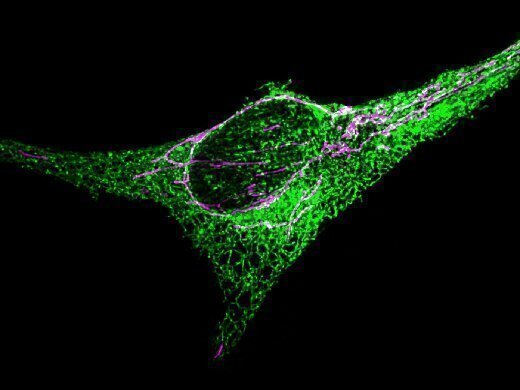
Corina Madreiter-Sokolowski is a professor of "Molecular Aging" at the Medical University of Graz, where she leads a research group of 13 members.
Her focus is on investigating the role that our mitochondria play in the aging process and age-related diseases. In doing so, she uses the latest technologies, such as high-resolution fluorescence microscopy, in both cellular aging models and in nematodes to find possible approaches for the development of new anti-aging strategies.
As part of the FWF science communication project "Hands-On Aging Research," you will have the opportunity to experience the world of academic research.
The accompanying MOOC specifically prepares students for the Flying Aging Labs, where they will get to know methods of aging research at their schools. Therefore, this MOOC vividly explains a variety of laboratory methods – from cell cultivation to drug testing on the model organism Caenorhabditis elegans.
Additionally, we offer fascinating insights into the different fields of activity and professions in the laboratory. We are looking forward to a lively exchange!
In the MOOC, participants gain insight into common methods of aging research – including the cultivation and isolation of cells, fluorescence microscopy, and drug testing on nematodes.
Basic knowledge in Biology
The course is conducted over 5 weeks or units. Each unit includes videos, additional materials, and a self-test to reflect on what has been learned. A discussion forum offers the opportunity to reflect, discuss, or delve deeper with other learners.
The course is divided into the following 5 chapters:
- The Heroes in the Lab: Who is behind the experiments?
- Small but Mighty: How do we cultivate cells in the lab?
- Time Travel of Cells: How do our body cells age?
- Tiny Helpers: Why are nematodes important for research?
- Microscopic Insights: How do we make the invisible visible?
This work is licensed under {licenselink} - Attribution CC BY Corina Madreiter-Sokolowski (Med Uni Graz)
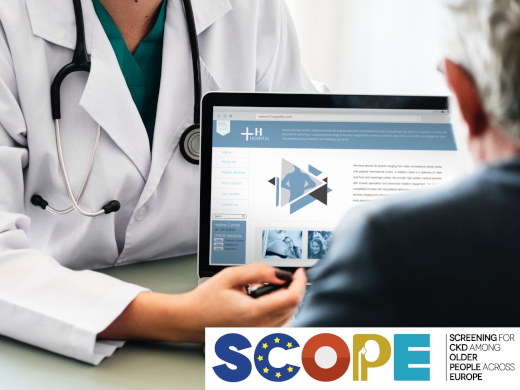
Regina Roller-Wirnsberger was appointed Professor for Geriatric Medicine and Curricular Development in 2011 at Medical University of Graz. Since then she has been involved in several EU- funded international and also national collaborative projects, all of those with a focus on complex care management of geriatric patients.
Sabine Zitta has been working as consultant of nephrology for more than 25 years at Medical University of Graz, Austria. She has a longstanding clinical and research expertise in laboratory testing of kidney function. She has also been actively involved into educational development on undergraduate level and continuous professional training for more than two decades.
The Consortium of the SCOPE project comprises of 9 partners. The logos of the respective participants in the project are outline on this start page of the MOOC. For further information about the distinct partners please visit the homepages of the affiliated universities. For further reading and information about the SCOPE project please visit the web-side of the project (http://www.scopeproject.eu).
{/mlang en} {mlang de}Regina Roller-Wirnsberger wurde 2011 zur Professorin für geriatrische Medizin und Curriculumsentwicklung an der Medizinischen Universität Graz ernannt. Seitdem war sie an zahlreichen EU-geförderten internationalen und nationalen gemeinschaftlichen Projekten beteiligt, welche sich allesamt auf das komplexe Versorgungsmanagement geriatrischer Patienten fokussieren.
Univ. Prof.in Dr.in Sabine Zitta arbeitet seit mehr als 25 Jahren als Fachärztin für Nephrologie an der Universitätsklinik für Innere Medizin Graz. Sie gilt international als Expertin im Bereich laborchemischer Funktionsdiagnostik in der Nephrologie. Neben ihrer Fachexpertise in diesem Fachbereich verfügt sie über langjährige Erfahrungen im Lehr.- und Ausbildungsbereich.
Das Konsortium des SCOPE Projektes besteht aus insgesamt 9 Partnern, die mit den Logos ihrer Organisationen auf dieser Startseite dargestellt sind. Nähere Informationen zu den einzelnen Partnern entnehmen Sie bitte den Homepages der Institutionen oder besuchen Sie die Webseite des SCOPE Projekts (http://www.scopeproject.eu).
{/mlang de} {mlang es}Regina Roller-Wirnsber fue asignada profesora del departamento de geriatría en la Universidad de Medicina de Graz en 2011, donde ha desarrollado su carrera curricular. Desde entonces, ha participado en varios proyectos de colaboración internacionales y nacionales financiados por la UE, todos ellos centrados en la gestión de cuidados complejos de pacientes geriátricos.
Sabine Zitta ha trabajado como médico adjunta de nefrología durante más de 25 años en la Universidad de Medicina de Graz, Austria. Tiene una larga experiencia en la práctica clínica y en investigación relacionada con las pruebas de laboratorio de la función renal. También ha participado activamente en el desarrollo educativo a nivel universitario y en la formación médica continua durante más de dos décadas.
El Consorcio del proyecto SCOPE está compuesto por 9 socios. Los logotipos de los respectivos participantes en el proyecto se resumen en esta página de inicio del MOOC. Para obtener más información sobre los distintos socios, visite las páginas de inicio de las universidades afiliadas. Para obtener más información e información sobre el proyecto SCOPE, visite la web del proyecto (http://www.scopeproject.eu).
{/mlang es} {mlang fr} Regina Roller- Wirnsberger a été désigné comme professeur de médecine gériatrique et de développement du curriculum à l’Université de Médecine à Graz. Depuis lors, elle a fait partie de plusieurs projets collaboratifs internationaux et nationaux, financés par l’Union Européenne. Tous ces projets ont mis l’accent sur la gestion complexe des soins des patients gériatriques.Sabine Zitta a travaillé comme médecin spécialiste en néphrologie depuis 25 ans à l’Université de Médecine à Graz. Elle est considérée comme experte reconnue dans le domaine des tests laboratoires de la fonction rénale. En outre, elle dispose d’une vaste expérience dans l’espace d’enseignement et de formation.
Le consortium du projet SCOPE consiste en 9 partenaires qui sont présentés avec les logos de leurs organisations dans ce page d’accueil. Pour de plus amples informations, veuillez consulter les sites web des institutions ou visitez le site web du projet SCOPE (http://www.scopeproject.eu).
{/mlang fr} {mlang it}Regina Roller-Wirnsberger è stata nominata Professore di Medicina Geriatrica e Sviluppo Curricolare nel 2011 presso l'Università di Medicina di Graz. Da allora è stata coinvolta in diversi progetti di collaborazione internazionale finanziati dall'UE e nazionale, tutti incentrati sulla complessa gestione dell'assistenza ai pazienti geriatrici.
Sabine Zitta lavora come consulente di nefrologia da oltre 25 anni presso l'Università di Medicina di Graz, Austria. Ha una lunga esperienza clinica e di ricerca nelle analisi di laboratorio delle funzioni renali. Ha inoltre partecipato attivamente allo sviluppo formativo a livello universitario e alla formazione professionale continua per più di due decenni.
Il consorzio del progetto SCOPE comprende 9 partner. I loghi dei rispettivi partecipanti al progetto sono riportati in questa pagina iniziale del MOOC. Per ulteriori informazioni sui diversi partner si prega di visitare le homepage delle università affiliate. Per ulteriori informazioni sul progetto SCOPE si prega di visitare il sito web del progetto (http://www.scopeproject.eu).
{/mlang it} {mlang nl} Regina Roller-Wirnsberger werd in 2011 benoemd tot hoogleraar Geriatrische geneeskunde en curriculaire ontwikkeling aan de Medische Universiteit van Graz. Sindsdien is ze betrokken bij verschillende door de EU gefinancierde internationale en ook nationale samenwerkingsprojecten, allemaal met een focus op complex zorgmanagement van geriatrische patiënten.Sabine Zitta werkt al meer dan 25 jaar als consultant voor nefrologie aan de Medische Universiteit van Graz, Oostenrijk. Ze heeft een langdurige klinische en onderzoeksexpertise in laboratoriumtesten van de nierfunctie. Ze is ook al meer dan twee decennia actief betrokken bij onderwijsontwikkeling voor de bachelor opleiding en permanente professionele training.
Het consortium van het SCOPE-project bestaat uit 9 partners. De logo's van de respectieve deelnemers aan het project staan op deze startpagina van de MOOC. Ga voor meer informatie over de verschillende partners naar de homepages van de aangesloten universiteiten. Ga voor meer informatie en informatie over het SCOPE-project naar de website van het project (http://www.scopeproject.eu).
{/mlang nl} {mlang pl} Regina Roller-Wirnsberger została profesorem medycyny geriatrycznej i programów nauczania w 2011 roku na Uniwersytecie Medycznym w Graz. Od tego czasu bierze udział w kilku finansowanych ze środków międzynarodowych i krajowych projektach, które koncentrują się na kompleksowym zarządzaniu opieką nad pacjentami geriatrycznymi.Sabine Zitta pracuje od ponad 25 lat jako konsultant nefrologii na Uniwersytecie Medycznym w Graz w Austrii. Ma wieloletnie doświadczenie kliniczne i badawcze w laboratoryjnych testach oceny czynności nerek. Od ponad dwudziestu lat aktywnie uczestniczy w rozwoju edukacji na poziomie licencjackim i ustawicznym szkoleniu zawodowym.
W projekt SCOPE jest realizowany przez 9 partnerów. Logo poszczególnych uczestników projektu znajdują się na stronie początkowej kursu/MOOC. W celu uzyskania większej ilości informacji na temat partnerów, zapraszamy na strony internetowe współpracujących uczelni. Natomiast więcej informacji na temat projektu SCOPE można znaleźć na stronie internetowej projektu (http://www.scopeproject.eu). {/mlang pl} {mlang sv} Regina Roller-Wirnsberger utnämndes till professor i geriatrisk medicin och utveckling 2011 vid Medicinska Universitetet i Graz. Sedan dess har hon varit engagerad i olika EU-finansierade internationella och även nationella samarbetsprojekt, alla med fokus på komplex vårdhantering av geriatriska patienter.Sabine Zitta har arbetat som rådgivare inom njursjukvård under mer än 25 år vid Medicinska Universitetet i Graz, Österrike. Hon har under lång tid stått för klinisk och forskningsexpertis vid laboratorietestning av njurfunktionen. Hon har också varit aktiv inom utbildningsutvecklingen på grundnivån och fortsättningsnivån under mer än två decennier.
Konsortiet för SCOPE-projektet innefattar 9 partners. Logga för respektive deltagare i projektet finns på startsidan för MOOC. För ytterligare information om vilka partners som ingår, vänligen se respektive universitets hemsida. För ytterligare information om SCOPE-projektet vänligen se hemsidan för projektet (http://www.scopeproject.eu).
{/mlang sv}Chronic kidney disease (CKD) is defined as change of kidney structure of declining function for more than three months with implications for health. CKD is an important public health problem worldwide, especially in older people. Evidence shows that, whereas the disease prevalence ranges between 10.2% and 16.0% in the adult population, this may peak up to over 50% among the 75+ age group. This suggests that future population aging in industrialized countries will be accompanied by an increase in the prevalence of CKD and its complications. In addition, research confirmed that older individuals with CKD might be at higher risk for developing functional limitation and disability, including impaired physical function, frailty, cognitive impairment, vision impairment, malnutrition, and sarcopenia.
This MOOC aims at closing gaps of basic knowledge addressing CKD in old age and its implications for medical management of older patients in general. It will address pathophysiological mechanisms that underlie CKD, will explain diagnostic pathways for kidney function with a focus on older patients and will explain the complex care management in a case-based way.
{/mlang en} {mlang de}Chronische Nierenerkrankungen (CKD) werden als Veränderungen der Nierenfunktion, welche länger als drei Monate andauern und gesundheitliche Auswirkungen nach sich ziehen, definiert. Chronische Nierenerkrankungen werden mit zunehmendem Lebensalter häufiger und stellen vor allem bei älteren Menschen eine Herausforderung für das Gesundheitssystem und im Gesundheitsbereich Beschäftigte, wie Ärzte, Diplomiertes Pflegepersonal, Pharmazeuten und andere dar. Gemäß der aktuellen Evidenzlage reicht die Krankheitsprävalenz bei Erwachsenen von 10.2% bis 16%, wobei diese in der Altersgruppe 75+ bis zu über 50% erreichen kann. Es ist auf Grund der demografischen Entwicklungen zu erwarten, dass es in den kommenden Jahrzehnten auch zu einer zahlenmäßigen Zunahme von Patienten kommen wird, welche an einer Einschränkung der Nierenfunktion leiden. Begleitend zur Nierenerkrankung und der häufig damit verbundenen Multimorbidität tragen vor allem ältere Patienten ein erhöhtes Risiko für funktionelle physische und kognitive Einschränkungen und Behinderung.
Dieser MOOC informiert über Alterungsprozesse und deren Auswirkung auf die Nierenfunktion. Weiters werden die Bestimmungsmethoden zur Ermittlung der Nierenfunktion und die Herausforderung der Methoden bei älteren Patienten beleuchtet. Im letzten Kurs des MOOC wird speziell auf das Komplexmanagement vor allem älterer Patienten mit eingeschränkter Nierenfunktion eingegangen.
{/mlang de} {mlang es}La enfermedad renal crónica (ERC) se define como el declive de la función renal durante más de tres meses con implicaciones para la salud.
La ERC es un importante problema de salud pública en todo el mundo, especialmente en las personas mayores. La evidencia muestra que, si bien la prevalencia de la enfermedad oscila entre 10.2 % y 16.0% en la población adulta, puede alcanzar un pico de más del 50% en el grupo de más de 75 años. Esto sugiere que el futuro envejecimiento de la población en los países industrializados irá acompañado de un aumento en la prevalencia de ERC y sus complicaciones.
Además, la investigación confirmó que las personas mayores con ERC podrían tener un mayor riesgo de desarrollar una limitación funcional y discapacidad, incluyendo el deterioro de la función física, la fragilidad, el deterioro cognitivo, deterioro visual y la sarcopenia.
MOOC tiene como objetivo aproximarse a los conocimientos básicos que abordan la ERC en la vejez y las implicaciones en el tratamiento médico de los pacientes mayores en general.
Se abordarán los mecanismo fisiopatológicos que subyacen a la ERC, así como se explicarán las vías de valoración de la función renal, manteniendo el enfoque en los pacientes de edad avanzada y en la complejidad de la asistencia clínica, mediante casos.
{/mlang es}
{mlang fr}
La maladie rénale chronique (MRC) est définie comme un changement des fonctions rénales qui dure plus de trois mois et implique des conséquences sanitaires. La MRC est un problème de santé publique important, surtout pour les personnes âgées. Cela constitue un défi pour le système de santé et les personnes y travaillant, comme, par exemple, les médecins, le personnel diplômé, les pharmaciens et autres. D’après l’évidence, la prévalence des maladies des adultes peut varier entre 12.2% et 16.0%, contrairement au groupe des 75+, dans lequel elle peut augmenter jusqu’ à un maximum de 50% ou même plus. Cela indique que la population future, vieillissant dans les pays industrialisés, sera accompagnée d’une augmentation de la MRC et ses complications. De plus, les résultats de recherche ont confirmé que les personnes âgées avec MRC sont plus à risque de développer des limitations fonctionnelles et de l’invalidité, y compris l’affaiblissement de la fonction physique, la fragilité, la déficience cognitive et visuelle, la malnutrition et la sarcopénie.
Ce MOOC vise à combler les lacunes des connaissances basiques concernant la MRC des personnes âgées et ses implications pour la gestion médicale des patients âgés en général. Il va adresser des mécanismes physiopathologiques qui sous-tendent la MRC, va expliquer des procédures de diagnostic pour la fonction rénale en mettant l’accent sur les patients âgés et va aussi expliquer la gestion complexe des soins.
{/mlang fr} {mlang it}La malattia renale cronica (Chronic kidney disease CKD) è definita come il cambiamento della struttura renale di una funzione in declino per più di tre mesi con implicazioni per la salute. La CKD è un importante problema di salute pubblica in tutto il mondo, specialmente nelle persone anziane. Gli studi scinetifici dimostrano che, mentre la prevalenza della malattia varia tra il 10,2% e il 16,0% nella popolazione adulta, questa può raggiungere un picco di oltre il 50% nella fascia di età 75+. Ciò suggerisce che il futuro invecchiamento della popolazione nei paesi industrializzati sarà accompagnato da un aumento della prevalenza della CKD e delle sue complicazioni. Inoltre, la ricerca ha confermato che le persone anziane affette da CKD potrebbero essere a più alto rischio di sviluppare limitazioni funzionali e disabilità, tra cui: compromissione della funzione fisica, fragilità, deficit cognitivo, deficit visivo, malnutrizione e sarcopenia.
Questo Educational Toolkit mira a colmare le lacune della conoscenza di base sulla CKD in età avanzata e le sue implicazioni nella gestione medica dei pazienti anziani in generale. L’Educational Toolkit affronterà i meccanismi fisiopatologici che sono alla base della CKD, spiegando i percorsi diagnostici per la funzione renale con particolare attenzione ai pazienti più anziani e la complessa gestione delle cure in modo personalizzato.
{/mlang it} {mlang nl} Chronische nierziekte (CKD) wordt gedefinieerd als verandering van de nierstructuur of afname van de nierfunctie gedurende meer dan drie maanden met gevolgen voor de gezondheid. CKD is een belangrijk volksgezondheidsprobleem wereldwijd, vooral bij ouderen. Er zijn aanwijzingen dat, waar de prevalentie van de ziekte varieert tussen 10,2% en 16,0% bij de volwassen bevolking, dit kan oplopen tot meer dan 50% onder de 75+ leeftijdsgroep. Dit suggereert dat de toekomstige vergrijzing in de geïndustrialiseerde landen gepaard zal gaan met een toename van de prevalentie van CKD en de complicaties ervan. Bovendien heeft onderzoek bevestigd dat oudere personen met CKD mogelijk een hoger risico lopen op het ontwikkelen van functionele en andere beperkingen, waaronder een verminderde fysieke functie, kwetsbaarheid, cognitieve stoornissen, slechtziendheid, ondervoeding en sarcopenie.Deze MOOC beoogt lacunes in de basiskennis te dichten op het gebied van CKD op oudere leeftijd en de implicaties ervan voor het medisch benadering van oudere patiënten in het algemeen. Het zal ingaan op pathofysiologische mechanismen die aan CKD ten grondslag liggen, het zal diagnostische stappen voor nierfunctie uitleggen met een focus op oudere patiënten en het zal ook het complexe zorgmanagement uitleggen, op casussen gebaseerd.
{/mlang nl} {mlang pl}Przewlekła choroba nerek (CKD) jest definiowana jako nieprawidłowości funkcji lub struktury nerek utrzymujące się ponad 3 miesiące z implikacjami dla zdrowia. CKD jest ważnym problemem zdrowia publicznego na całym świecie, szczególnie u osób starszych. Badania wskazują, że chociaż częstość występowania choroby wynosi od 10,2% do 16,0% w populacji dorosłych, może wzrosnąć do ponad 50% w grupie osób 75+.
Sugeruje to, że przyszłemu starzeniu się populacji w krajach uprzemysłowionych będzie towarzyszył wzrost częstości występowania CKD i jej powikłań. Ponadto badania potwierdziły, że osoby starsze z CKD mogą być narażone na większe ryzyko wystąpienia dysfunkcji sprawności i samej niepełnosprawności, w tym upośledzenia funkcji fizycznych, wystąpienia zespołu słabości, zaburzeń poznawczych, zaburzeń widzenia, niedożywienia i sarkopenii.
Proponowany przez nas kurs ma na celu uzupełnienie braków w podstawowej wiedzy dotyczącej CKD w starszym wieku oraz konsekwencji tego schorzenia dla zarządzania opieką medyczną nad pacjentami w starszym wieku. Przedstawione zostaną mechanizmy patofizjologiczne leżące u podstaw CKD, a także ścieżki diagnostyczne czynności nerek, ze szczególnym uwzględnieniem specyfiki pacjentów starszych oraz w oparciu o studia przypadków wyjaśnione zostanie złożone zarządzanie opieką nad tymi pacjentami.
{/mlang pl} {mlang sv}Kronisk njursjukdom/Chronic kidney disease (CKD) definieras som 3 månader av försämrad njurfunktion med påverkan på hälsan. CKD är ett viktigt folkhälsoproblem över hela världen, speciellt hos äldre personer. Evidensen visar att prevalensen ligger inom 12,0 % till 16,0 % av den vuxna befolkningen, men kan uppgå till över 50 % för personer i åldersgruppen 75+. Detta innebär att i framtiden kommer den åldrande befolkningen i industriländerna starkt bidra till en ökning av prevalensen för CKD med efterföljande komplikationer. I tillägg till detta har forskningen bekräftat att äldre individer med CKD kan ha en högre risk att utveckla funktionsbegränsningar och handikapp, inklusive försämrad fysisk funktion, skörhet, kognitiv nedsättning, synförsämring, undernäring och minskad muskelmassa.
Denna MOOC-kurs har som syfte att komma till rätta med dessa grundläggande kunskapsglapp genom att fokusera på CKD hos äldre och hur det påverkar möjligheterna till medicinsk behandling av äldre patienter. I kursen kommer vi att titta närmare på sjukdomsfysiologiska mekanismer som ligger bakom CKD, vi kommer att förklara diagnostiska genvägar för kontroll av njurfunktionen med fokus på äldre patienter, och förklara den komplexa hanteringen av dessa patienter på individbasis.
{/mlang sv} {mlang he}מחלת כליות כרונית (chronic kidney disease – CKD) מוגדרת כשינויים במבנה הכליות וירידה בתפקודן למשך של יותר משלושה חודשים, לכך יש השלכות בהקשר לבריאות האדם. ה-CKD הינה בעיה רפואית בעלת חשיבות גבוהה לבריאות הציבור ברחבי העולם, ובמיוחד בקרב קשישים. עדויות מחקריות חדשות מצביעות על שכיחות מחלת ה-CKD שנעה בין 10.2 אחוז ל- 16.0 אחוז בקרב קשישים, השכיחות בשיאה בגיל 75 כאשר קרוב ל 50% מהקשישים סובלים מ-CKD. לכן צפוי שבשנים הבאות כאשר האוכלוסייה במדינות המתועשות תזדקן, זה ילווה גם בעליה דרמטית בשכיחות ה-CKD וסיבוכיו. מחקרים מצביעים שקשישים שסובלים מ- CKDנמצאים בסיכון גבוה יותר לפתח מגבלות תפקודית, נכות, תפקוד פיסי לקוי, חולשה גופנית, פגיעה קוגניטיבית, ליקוי ראייה, תת-תזונה, ליקויים בשיווי משקל וסרקופניה.
מטרת ערכת הלמידה בשיטת ה- Massive Open Online Course (MOOC) לצמצום פערים של ידע בסיסי לגבי ה- CKD בקרב קשישים והשלכותיו לגבי ניהול הטיפול הרפואי בקשיש באופן כללי. בקורס נתמקד גם במכניזם הפתופיזיולוגי שעומד בבסיס ה-CKD. נסביר את כלי האבחון למדדי תפקוד כלייתי עם הדגש על מטופלים קשישים, ונסביר את המורכבות של ניהול הטיפול הרפואי באמצעות טיפול פרסונלי מותאם A case-based way.
{/mlang he}Chronic kidney disease (CKD) is defined as the presence of kidney structure of function abnormalities for more than three months with implications for health, especially with older people. Although CKD prevalence is increasing and the importance of an early diagnosis to prevent complications such as end-stage renal disease (ESRD) is well established, however, the screening programs in Europe are highly heterogeneous, fragmented, being in most cases based on opportunistic rather than structured assessments of patients. The current course aims at bringing together all evidence-based information on CKD in old age, ranging from molecular and pathological underlying mechanisms, pitfalls of diagnostic and clinical management of CKD in old age as well as guideline-based recommendations for daily clinical practice.
{/mlang en} {mlang de}Molekulare und klinische Grundlagen des Alterungsprozesses, Nierenfunktion im Alter, laborchemische Bestimmungsmethoden der Nierenfunktion mit besonderer Berücksichtigung von Besonderheiten bei alten Menschen, klinischen Management älterer Patienten mit eingeschränkter Nierenfunktion mit speziellem Blick auf Multimorbidität und Funktionalität in der täglichen klinischen Praxis.
{/mlang de} {mlang es}La enfermedad renal crónica (ERC) se define como la presencia de anomalías en la función renal durante más de tres meses con implicaciones para la salud, especialmente con las personas mayores.
Aunque la prevalencia de ERC está aumentando, y está bien establecida la importancia de un diagnóstico precoz para prevenir complicaciones como la enfermedad renal en estadio terminal(ESRD), sin embargo, los programas de cribado en Europa son muy heterogéneos, fragmentados y, en la mayoría de los casos, se basan en la oportunidad más que en evaluaciones estructuradas de los pacientes.
El curso actual tiene como objetivo reunir toda la información basada en la evidencia sobre la ERC en la vejez, que abarca desde los mecanismos subyacentes moleculares y patológicos, las dificultades del diagnóstico y el manejo clínico de la ERC en el paciente anciano, así como recomendaciones basadas en guías clínicas para la práctica clínica diaria.
Bases moléculaires et cliniques du processus de vieillissement, fonctions rénales des personnes âgées, tests diagnostiques des fonctions rénales, en tenant compte les personnes âgées, gestion clinique des patients âgés ayant des fonctions rénales limitées avec une attention particulière à la multimorbidité et la fonctionnalité dans la pratique clinique quotidienne.
{/mlang fr} {mlang it}La malattia renale cronica (CKD) è definita come la presenza di anomalie funzionali della struttura renale per più di tre mesi con implicazioni per la salute, specialmente con le persone anziane. Sebbene la prevalenza della CKD sia in aumento e l'importanza di una diagnosi precoce per prevenire complicanze come le malattie renali allo stadio terminale (ESRD) sia ben consolidata, tuttavia, i programmi di screening in Europa sono altamente eterogenei, frammentati, essendo nella maggior parte dei casi basati su valutazioni opportunistiche piuttosto che su valutazioni strutturate dei pazienti. Il corso attuale mira a riunire tutte le informazioni basate sull'evidenza scientifica sulla CKD negli anziani, che vanno dai meccanismi molecolari e patologici sottostanti, alle insidie della gestione diagnostica e clinica della CKD nei pazienti in età avanzata come pure alle raccomandazioni basate su linee guida per la pratica clinica quotidiana.
{/mlang it} {mlang nl}Chronische nierziekte (CKD) wordt gedefinieerd als de aanwezigheid van afwijkingen in de nierstructuur of nierfunctie gedurende meer dan drie maanden met gevolgen voor de gezondheid, vooral bij ouderen. Hoewel de prevalentie van CKD toeneemt en het belang van een vroege diagnose om complicaties zoals eindstadium nierziekte (ESRD) te voorkomen al goed is erkend, zijn de screeningsprogramma's in Europa zeer heterogeen, gefragmenteerd en meestal niet gebaseerd op gestructureerde beoordeling van patiënten. De huidige cursus is gericht op het samenbrengen van alle evidence-based informatie over CKD op oudere leeftijd, variërend van moleculaire en pathologische onderliggende mechanismen, valkuilen van diagnostiek en klinische behandeling van CKD op oudere leeftijd, evenals op richtlijnen gebaseerde aanbevelingen voor de dagelijkse klinische praktijk.
{/mlang nl} {mlang pl}Przewlekła choroba nerek (CKD) jest definiowana jako nieprawidłowości funkcji lub struktury nerek utrzymujące się ponad 3 miesiące z implikacjami dla zdrowia, szczególnie wśród osób starszych. Chociaż częstość występowania CKD rośnie i znaczenie wczesnej diagnostyki w celu zapobiegania powikłaniom, takim jak schyłkowa niewydolność nerek (ESRD), jest dobrze ugruntowana, jednak programy badań przesiewowych w Europie są bardzo niejednorodne, fragmentaryczne i w większości przypadków oparte raczej na oportunistycznej niż ustrukturyzowanej analizie pacjentów. Obecny kurs ma na celu zgromadzenie wszystkich opartych na dowodach informacji na temat CKD w starszym wieku, od mechanizmów molekularnych i patologicznych leżących u podstaw CKD przez pułapki diagnostyczne do klinicznego zarządzania CKD w starszym wieku, a także przedstawienie opartych na zaleceniach wytycznych dotyczących codziennej praktyki klinicznej.
{/mlang pl} {mlang sv}Om kronisk njursjukdom/Chronic kidney disease (CKD) som definieras som närvaro av njurstruktur med funktionsavvikelser under mer än tre månaders tid med påverkan på hälsan hos äldre individer. Fastän CKD-förekomsten ökar och vikten av tidig diagnos för att förebygga komplikationer som slutstadie-njursjukdom (ESRD) är väletablerad, är emellertid screeningprogrammen i Europa mycket heterogena, fragmenterade, i de flesta fall baserade på opportunistiska föreställningar snarare än på strukturerade bedömningar av patienter. Den aktuella kursen syftar till att sammanföra all evidens-baserad information om CKD vid hög ålder, allt från molekylärt och patologiskt underliggande mekanismer, fallgropar vid diagnostik och kliniskt omhändertagande av CKD i hög ålder liksom guideline-baserade rekommendationer för daglig klinisk praxis.
{/mlang sv} {mlang he}מחלת כליות כרונית (CKD) מוגדרת כפגיעה במבנה הכליות וליקוי תפקודי למשך של יותר מ-3 חודשים עם השלכות על בריאות, במיוחד בקרב קשישים. למרות ששכיחות ה- CKD בעולם גוברת ולמרות שהחשיבות של אבחון מוקדם בכדי למנוע סיבוכי המחלה כגון מחלת כליות סופנית (ESRD) ידועות היטב, עדיין תכוניות ההתערבות למניעת סיבוכי ה-CKD באירופה הם מאוד הטרוגנית, מגוונות (במידה ויש) ובמרבית המקרים מבוססות על "שיגעון" מקומי של אחד הרופאים ולא על תכנית מובנית ומוגדרת. מטרת הקורס הנוכחי היא להביא את כלל העדויות המחקריות לגבי ה-CKD בקרב קשישים, החל ממכניזמים מולקולריים ופתופיסיולוגיים, ועד לחסרונות של אבחון קליני כיום, כולל ניהול מחלת ה-CKD בקרב קשישים, הדרכה והמלצות כיצד לנהל את המחלה על בסיס יום-יומי בקליניקה.
{/mlang he}Following this course students will:
- know the impact of ageing mechanisms on kidney function
- know the interaction of multimorbidity and chronic kidney disease (CKD)
- know the impact of CKD on individual resilience, cognitive and physical function
- be able to nominate laboratory test systems to be used for the accurate determination of kidney function in old age
- be able to consider an older person’s need with CKD in a holistic and personalized manner
Nach Absolvierung des MOOCs:
- Kennen Studierende die Auswirkungen des Alterungsprozesses auf die Nierenfunktion
- Kennen Studierende den Einfluss einer chronischen Nierenfunktionsstörung im Alter auf andere Erkrankungen (Multimorbidität)
- Kennen Studierende den Einfluss einer chronischen Nierenfunktionsstörung im Alter auf die individuelle physische und kognitive Funktionalität (Frailty)
- Können Studierende laborchemische Verfahren zur Bestimmung der Nierenfunktion benennen und Besonderheiten in der Diagnostik bei alten Menschen im klinischen Alltag berücksichtigen
- Sind Studierende in der Lage, die Besonderheiten der Bedürfnisse älterer Menschen mit chronischen Nierenerkrankungen (CKD) in ganzheitlicher und personalisierter Art und Weise zu erkennen
Después de este curso, los estudiantes deberán:
- Conocer el impacto de los mecanismos de envejecimiento en la función renal.
- Conocer la interacción de la multimorbilidad y la enfermedad renal crónica (ERC)
- Conocer el impacto de la ERC en la resistencia individual, la función cognitiva y física.
- Ser capaz de determinar las pruebas de laboratorio a realizar para la valoración precisa de la función renal en el paciente anciano
- Poder considerar las necesidades de una persona mayor con ERC de manera integral y personalizada
En suivant ce cours, les étudiants:
- connaissent les conséquences du processus du vieillissement sur la fonction rénale
- connaissent l’impact d’une dysfonction rénale chronique des personnes âgées sur des autres maladies (multimorbidité)
- connaissent l’impact d’une dysfonction rénale chronique des personnes âgées sur la fonctionnalité physique et cognitive individuelle (fragilité)
- peuvent nommer des méthodes de tests de laboratoire pour déterminer la fonction rénale et peuvent prendre en compte les caractéristiques du diagnostic des personnes âgées dans la pratique clinique quotidienne
- sont capables de tenir compte des particularités et besoins des personnes âgées avec une maladie rénale chronique (MRC) dans une manière holistique et personnalisée.
Seguendo questo corso gli studenti:
- conosceranno l'impatto dei meccanismi di invecchiamento sulla funzione renale
- conosceranno l'interazione tra multimorbilità e malattie renali croniche (CKD)
- conosceranno l'impatto della CKD sulla resilienza individuale, le funzioni cognitive e fisiche
- saranno in grado di utilizzare sistemi di analisi di laboratorio per la determinazione accurata della funzione renale negli anziani
- saranno in grado di considerare le esigenze di una persona anziana con la CKD in modo olistico e personalizzato
Na deze cursus zullen studenten:
- de impact van verouderingsmechanismen op de nierfunctie kennen
- de interactie van multimorbiditeit en chronische nierziekte (CKD) kennen
- de impact van CKD op individuele veerkracht, cognitieve en fysieke functie kennen
- laboratoriumtestsystemen kunnen benoemen die moeten worden gebruikt voor de nauwkeurige bepaling van de nierfunctie op oudere leeftijd
- op een holistische en gepersonaliseerde manier rekening kunnen houden met de behoefte van een oudere persoon met CKD
Po ukończeniu kursu student będzie:
- znać wpływ mechanizmów starzenia się na czynność nerek
- znać interakcję wielochorobowości i przewlekłej choroby nerek (CKD)
- znać wpływ CKD na indywidualną odporność, funkcje poznawcze i fizyczne
- być w stanie określić zestawy testów laboratoryjnych, które zostaną wykorzystane do dokładnego określenia funkcji nerek w starszym wieku
- być w stanie rozważyć potrzeby osoby starszej z CKD w sposób całościowy i spersonalizowany
Efter att ha följt denna kurs kommer studenterna att:
- Känna till påverkan av åldrandets mekanismer på njurfunktionen
- Känna till interaktionen mellan multisjuklighet och kronisk njursjukdom (CKD)
- Känna till påverkan av CKD på individens återhämtningsförmåga, kognitiva och fysiska funktion
- Kunna använda sig av laboratorietester för att erhålla mer precis bestämning av njurfunktionen vid hög ålder
- Kunna avgöra en äldre patients behov vid CKD på ett holistisk och individuellt sätt
בעקבות הקורס המשתתף ידע:
- ההשפעה של מנגנוני הזדקנות על תפקוד הכליות
- האינטראקציה בין multimorbidity, לבין מחלת כליות כרונית (CKD
- ההשפעה של CKD על העמידות של הקשישים, מבחינה קוגניטיבית וגופנית
- יוכל למנות בדיקות מעבדה בדיקת שמשמשות בכדי לאבחן במדויק את תפקוד נכליות בקרב קשישים
- יוכלו לשקול את הצורך של קשישים עם CKD בטפול בצורה הוליסטית ומותאמת אישית
Basic knowledge of anatomy of kidney, bone, muscle structure, physiology of kidney function, endocrine and haemato-poetic system, basic knowledge of laboratory testing of serum and urine samples.
{/mlang en} {mlang de}Grundkenntnisse über die Anatomie der Niere, Knochen, Muskelstrukturen, Physiologie der Nierenfunktion, endokrines und hämatopoetisches System, Grundkenntnisse über Laboruntersuchungen von Serum und Urinproben.
{/mlang de} {mlang es}Conocimientos básicos de anatomía de los riñones, huesos, estructura muscular, fisiología de la función renal, sistema endocrino y hematopoyético y de análisis de laboratorio de muestras de suero y orina.
{/mlang es} {mlang fr}Connaissance de base de l’anatomie du rein, des os, des structures musculaires, la physiologie des fonctions rénales, le système endocrinien et hématopoïétique, connaissance élémentaire des analyses de laboratoire du sérum et des échantillons d’urine.
{/mlang fr} {mlang it}Conoscenze di base dell’anatomia del rene, ossea, della struttura muscolare, della fisiologia della funzione renale, del sistema endocrino ed ematopoietico, conoscenze di base di analisi di laboratorio di campioni di siero e urine.
{/mlang it} {mlang nl}Basiskennis van anatomie van nier, bot, spierstructuur, fysiologie van nierfunctie, hormoonhuishouding en hematopoëse, basiskennis van laboratoriumtests van bloedserum- en urinemonsters.
{/mlang nl} {mlang pl}Podstawowa wiedza na temat anatomii nerek, kości, budowy mięśni, fizjologii funkcji nerek, układu hormonalnego i układu krwiotwórczego, podstawowa wiedza na temat analizy laboratoryjnej próbek surowicy i moczu.
{/mlang pl} {mlang sv}Grundläggande kunskaper om anatomin vad det gäller njurar, ben, muskelstruktur, fysiologin för njurfunktionen, endokrina och blodbildande system, grundläggande kunskaper om laboratorietestning av serum- och urinprover.
{/mlang sv} {mlang he}ידע בסיסי באנטומיה של הכליות, העצמות, מבנה השרירים, הפיזיולוגיה של תפקודי כליה, המערכת האנדוקרינית ומערכת המופוייטית, ידע בסיסי בבדיקות מעבדה : בדיקות דם, סרום ושתן.
{/mlang he}The course is divided into three different modules. The completion of all modules allow to collect 1,0 European Credit (ECTS). Following registration learners attend three different courses of 10-15 minutes. Additionally, information material is provided together with the videos. It is expected that students undergo a short self-assessment of each sub-topic (course), answering 4 multiple choice questions (MCQs), either Typ-A or Pick-N style. Self-assessment may be repeated up to a maximum of 5 times. In order to receive a participation acknowledgement at least 75% have to be reached at each quiz. Finally, an evaluation of the course is requested from participants for quality assurance of the training course. With provision of the feedback participants agree with an anonymous statistical workup and publication of evaluations.
{/mlang en} {mlang de}Der Kurs ist in drei unterschiedliche Kurse unterteilt. Die positive Absolvierung des gesamten MOOC (= 3 Kurse) entspricht einer Leistung im Umfang von 1,0 Europäischen Credits (ECTS). Nach Registrierung absolvieren Studierende drei Kurse online in der Dauer von 10-15 Minuten und erhalten zusätzliches Lernmaterial zum Thema bereitgestellt. Nach jedem Kurs finden Absolventen ein kurzes Selbst-Assessment aus 4 multiple Choice Fragen (Typ-A oder Pick-N Stil). Die Kurse können beliebig oft absolviert werden. Für die Absolvierung des nachgeschalteten Kurz-Assessments sind 5 Versuche vorgesehen. Um eine Teilnahmebestätigung zu erhalten, müssen bei jedem Quiz mindestens 75% erreicht werden. Abschließend wird von den Teilnehmern eine Kursevaluierung zum Zwecke der Qualitätssicherung des Online Kurses durchgeführt. Durch die Bereitstellung des Feedbacks stimmen die Teilnehmer einer anonymen statistischen Auswertung und Veröffentlichung der Evaluierung zu.
{/mlang de} {mlang es}El curso se divide en tres módulos diferentes, cada uno de los cuales consta de un video de 10-15 minutos. Además, se proporcionará material adicional en cada módulo. Los alumnos deberán asistir a los tres módulos y superar una breve autoevaluación de cada uno, referente únicamente al material visual. La autoevaluación será tipo test, respondiendo a 4 preguntas de respuesta múltiple, pudiendo ser una única respuesta correcta o varias y pudiendo repetirse hasta un máximo de 5 veces la evaluación. La superación de cada módulo se convalida con 1,0 créditos europeos (ECTS). Para recibir el certificado, se debe alcanzar al menos el 75% en cada prueba. Finalmente, se solicita una evaluación del curso a los participantes para garantizar la calidad del curso de capacitación. Mediante la participación en el curso, se acepta el análisis estadístico anónimo y la publicación de las evaluaciones realizadas durante el mismo
{/mlang es} {mlang fr}Le cours est divisé en trois cours (modules) différents. La réussite du cours complet (= 3 modules) correspond à 1,0 ECTS (système européen de transfert de crédits). Après l’inscription, les étudiants suivent trois cours durant 10 à 15 minutes et reçoivent des matériaux supplémentaires pour ces sujets. Après avoir terminé chaque cours, les étudiants trouvent une courte auto-évaluation avec 4 questions à choix multiple (du genre type-A ou Pick-N). Les auto-évaluations peuvent être faites 5 fois au maximum. Pour recevoir la confirmation de participation, il faut atteindre au moins 75% à tous les quiz. A la fin, les étudiants sont demandés à remplir une évaluation du cours pour l’assurance qualité du cours en ligne. En remplissant le feedback, les participants se déclarent d’accord avec l’analyse statistique (qui est fait de manière anonyme) et la publication de l’évaluation.
{/mlang fr} {mlang it}Il corso è suddiviso in tre diversi moduli. Ognuno dei moduli permette la raccolta di 1 credito europeo (ECTS). A seguito della registrazione gli studenti frequentano tre diversi corsi di 10-15 minuti. Inoltre, insieme ai video viene fornito materiale informativo. Si prevede che gli studenti si sottopongano ad una breve autovalutazione per ogni sotto-argomento (corso), rispondendo a 4 domande a scelta multipla (MCQ), sia in stile Typ-A o Pick-N. L'autovalutazione può essere ripetuta fino ad un massimo di 5 volte. Per ricevere un riconoscimento di partecipazione è necessario raggiungere almeno il 75% delle risposte corrette ad ogni quiz. Infine, una valutazione del corso è richiesta ai partecipanti per garantire la qualità del corso di formazione. Con l’invio dei feedback i partecipanti acconsentono l’utilizzo delle risposte per un lavoro statistico anonimo e la pubblicazione delle valutazioni.
{/mlang it} {mlang nl}De cursus is verdeeld in drie verschillende modules. Met elk van de modules kan 1,0 European Credit (ECTS) worden verzameld. Na registratie volgen de studenten drie verschillende cursussen van 10-15 minuten. Bovendien wordt bij de video's informatiemateriaal verstrekt. Verwacht wordt dat studenten een korte zelfevaluatie van elk subonderwerp (cursus) ondergaan, waarbij ze 4 multiple choice vragen (MCQ's) beantwoorden, in Typ-A- of Pick-N-stijl. Zelfbeoordeling mag maximaal 5 keer worden herhaald. Om een bewijs van deelname te ontvangen, moet bij elke quiz minstens 75% worden bereikt. Ten slotte wordt een evaluatie van de cursus gevraagd aan de deelnemers voor kwaliteitsborging van de training. Met het verstrekken van de feedback stemmen de deelnemers in met een anonieme statistische verwerking en publicatie van evaluaties.
{/mlang nl} {mlang pl}Kurs podzielony jest na trzy różne moduły. Każdy z modułów umożliwia pobranie 1,0 europejskiego kredytu (ECTS). Po rejestracji uczniowie uczęszczają na trzy różne kursy trwające 10–15 minut. Dodatkowo wraz z filmami dostarczane są materiały informacyjne. Studenci powinni poddać się krótkiej samoocenie po każdym z modułów (części kursu), odpowiadając na 4 pytania wielokrotnego wyboru (MCQ), zarówno w stylu Typ-A, jak i Pick-N. Samoocenę można powtórzyć maksymalnie 5 razy. Aby otrzymać potwierdzenie uczestnictwa, w każdym quizie należy uzyskać do co najmniej 75%. Na koniec uczestnicy są proszeni o ocenę kursu w celu zapewnienia wysokiej jakości szkolenia. Dzięki przekazaniu informacji zwrotnej uczestnicy zgadzają się na anonimową analizę statystyczną i publikację ocen.
{/mlang pl} {mlang sv}Kursen kommer delas in i tre olika moduler. Var och en av dessa moduler ger som mest 1,0 European Credit (ECTS). Följt av registrering kommer eleverna att delta i tre olika kurser om 10-15 minuter. Dessutom tillkommer informationsmaterial så som videofilmer. Det förväntas att studenterna genomgår en kort självskattning för varje underavdelning (delkurs) och svarar på 4 flervalsfrågor (MCQs), antingen typ-A eller Välj N. Självskattningen kan upprepas upp till högst 5 gånger. För att erhålla godkännande på deltagande krävs att minst 75 % rätt svar erhålls för varje quiz. Slutligen krävs en utvärdering av kursen av deltagarna för kvalitetssäkring av denna övningskurs. Genom att lämna sin feedback instämmer deltagarna i en anonym statistisk uppföljning och publicering av utvärderingen.
{/mlang sv} {mlang he}הקורס מחולק לשלושה מודולים שונים. כל אחד המודולים מאפשרת קבלה של 1 נקודת קרדיט אירופית (ECTS). לאחר הרישום לקורס הנרשמים יוכלו להשתתף בשלושה קורסים שונים. בנוסף, חומר המידע יסופק עם קטעי וידאו. מצופה שהסטודנטים יעברו הערכה קצרה אחרי כל אחד מנושאי המשנה בקורס. יהיה על הסטודנטים לענות על 4 שאלות מרובות ברירה (MCQs). ניתן לחזור על ההערכה העצמית עד למקסימום של 5 פעמים. על מנת לקבל אישור השתתפות/מעבר של הקורס, צריך לקבל ציון של לפחות 75% בכל בוחן. לבסוף, נדרש מהסטודנטים/משתתפי הקורס לבצע הערכה של הקורס עבור אבטחת איכות של ההכשרה. עם מתן המשוב למשתתפי הקורס, הם יתבקשו לתת הסכמתם לביצוע בדיקות סטטיסטיות ופרסום של הערכות באופן אנונימי.
{/mlang he}Participation is graduated by a certificate, which includes the name of the participant, the title of the course, the ECTS achieved. The certificate is based on a 75% positive assessment following the course. Accreditation as elective is possible if the course content is accepted by partner universities and the approved by an assessment format accepted by partners locally.
{/mlang en} {mlang de}Die Teilnahme wird durch ein Zertifikat bestätigt, welches den Namen des Teilnehmers / der Teilnehmerin, den Kurstitel und die erlangten ECTS beinhaltet. Das Zertifikat beruht auf einer zu mindestens 75% positiven Bewertung des Kurses. Eine Akkreditierung als Wahlfach ist möglich, sofern der Kursinhalt von Partneruniversitäten akzeptiert und durch eine Überprüfung lokaler Partner anerkannt wird.
{/mlang de} {mlang es}La participación se acredita mediante un certificado, que incluye el nombre del participante, el título del curso y los ECTS alcanzados. El certificado se obtiene con una evaluación positiva del 75% del contenido del curso. La acreditación del curso como optativa es posible si el contenido del curso es aceptado por las universidades asociadas y es aprobado en un formato de evaluación aceptado a nivel local.
{/mlang es} {mlang fr}La participation est confirmée avec un certificat qui inclue le nom du participant, le titre du cours et les ECTS atteints. Le certificat est basé sur une réussite d’au moins 75% du cours. Le cours peut être reconnu comme cours à option si les universités partenaires acceptent le contenu et les partenaires locaux le reconnaissent aussi.
{/mlang fr} {mlang it}La partecipazione è riconosciuta tramite il rilascio di un certificato, che riporta il nome del partecipante, il titolo del corso, l'ECTS conseguito. Il certificato si basa su una valutazione con almeno il 75% delle risposte corrette dopo il corso. L'accreditamento, poiché facoltativo, è possibile se il contenuto del corso è accettato dalle università partner e approvato da un modello di valutazione accettato dai partner locali del progetto SCOPE.
{/mlang it} {mlang nl}Deelname wordt bevestigd met een certificaat, dat de naam van de deelnemer, de titel van de cursus en de behaalde ECTS omvat. Het certificaat is gebaseerd op een 75% positieve beoordeling na de cursus. Accreditatie als keuzevak is mogelijk als de cursusinhoud wordt goedgekeurd door partneruniversiteiten en de goedkeuring door een beoordelingsformaat dat door partners lokaal wordt geaccepteerd.
{/mlang nl} {mlang pl}Uczestnictwo kończy się uzyskaniem certyfikatu, który zawiera imię i nazwisko uczestnika, tytuł kursu oraz uzyskane punkty ECTS. Certyfikat jest oparty o pozytywnej w 75% ocenie po kursie. Akredytacja jako fakultatywna jest możliwa, jeśli treść kursu jest akceptowana przez partnerskie uniwersytety i zatwierdzona według obowiązujących formatów oceny.
{/mlang pl} {mlang sv}Deltagandet verifieras med ett intyg, som inkluderar namn på deltagaren, kurstitel, antal erhållna ECT-poäng. Intyget baseras på 75 % korrekta svar i kursen. Elektiv ackreditering är möjlig om kursinnehållet accepteras av våra partneruniversitet och godkänd genom ett bedömningsformat som accepteras av våra partners lokalt.
{/mlang sv} {mlang he}משתתפי הקורס יזכו בתעודת השתתפות שתכלול את שם המשתתף נושא הקורס מספר נקודות הקרדיט שיקבל על השתתפות בקורס. התעודה תתבסס על קבלת ציון של מעל 75% בבחני הקורס . האקרדיטציה כקורס אקטיב אפשרית אם תוכני הקורס יהיו מקובלים על ידי ועדות ההוראה המקומיות בקרב שותפי המחקר.
{/mlang he}{mlang en}
This work is licensed under a {licenselink}
{/mlang en}
{mlang de}
Dieses Werk ist lizenziert unter einer {licenselink}
{/mlang de}
{mlang de}Fördergeber{/mlang de}{mlang en}Financed by{/mlang en}
{mlang en}
{/mlang en}
{mlang de}
{/mlang de}
{mlang de}Flyer{/mlang de}{mlang en}Flyer{/mlang en}
| DE | EN | FR | HE | IT | NL | PL | ES | SV |

Der Grazer Allgemeinmediziner erstellte zusammen mit dem wissenschaftlichen Team der Universität Graz und mit technischer Unterstützung der TU Graz die medizinischen Fallbeispiele für den Kurs.
{mlang de}
Mit diesem Online-Kurs werden die Möglichkeiten und vor allem die Grenzen und Gefahren bei der Selbstdiagnose von Krankheiten mit Hilfe von Internetrecherche aufgezeigt. Die Kursteilnehmer/innen sollen - etwa so wie in der Fernsehserie "Dr. House" - anhand vorgegebener Symptome herausfinden, um welche Krankheit es sich jeweils handelt. Insgesamt gibt es sechs Fallbeispiele, zu deren Lösung im Internet recherchiert werden soll.
Die Fallbeispiele werden in Form von Kurzvideos präsentiert. Für die Kursteilnehmer/innen wird ein moderiertes Diskussionsforum eingerichtet, in dem sie sich über ihre Erfahrungen bei der Recherche austauschen können.
Die Teilnehmer/innen können ihre Diagnosen mit jenen der Kurskolleginnen und –kollegen sowie jenen von Ärztinnen und Ärzten vergleichen. Zusätzlich erklärt ein praktischer Arzt, welche der zur Auswahl stehenden Diagnosen eher wahrscheinlich und welche eher unwahrscheinlich sind.
Der Kurs soll die Teilnehmer/innen dafür sensibilisieren, im Internet verfügbare medizinische Informationen richtig einzuschätzen, er ist aber keine Anleitung dafür, den Arztbesuch durch Internetrecherchen zu ersetzen. Im Kurs werden daher auch keine Empfehlungen für diesbezügliche Angebote im Internet gegeben und es werden auch keine medizinischen Fragen beantwortet, die sich nicht auf die präsentierten Fallbeispiele bzw. die Lösung dieser Fallbeispiele beziehen.
{/mlang de}
{mlang de}
Mit Hilfe des Online-Kurses wird untersucht, inwieweit sich Internetrecherche im Gesundheitsbereich auf den Wissenserwerb von medizinischen Laien in ihrer Rolle als Patientinnen bzw. Patienten auswirkt und welcher Nutzen bzw. welche Gefahren damit verbunden sind. In diesem Zusammenhang werden u.a. die während des Online-Kurses generierten Daten der Kursteilnehmer/innen analysiert. Dazu werden alle Daten anonymisiert und die Daten werden ausnahmslos für wissenschaftliche Zwecke unter Wahrung des wissenschaftlichen Ethos verwendet. Persönliche Daten müssen für die Kursteilnahme nicht bekanntgegeben werden und werden im Fall der Bekanntgabe nicht in die Analyse mit einbezogen. Alle Kursteilnehmer/innen werden bei der Anmeldung zum Kurs darüber informiert, welche ihrer im Verlauf der Kursteilnahme generierten Daten in welcher Form verwendet werden.
{/mlang de}
{mlang de}
Es sind keine Vorkenntnisse nötig.
{/mlang de}
{mlang en}
This work is licensed under a {licenselink}
{/mlang en}
{mlang de}
Dieses Werk ist lizenziert unter einer {licenselink}
{/mlang de}
{mlang de}
In Kooperation mit Medizinische Universität Graz
Projektteam
- Johannes Bernhardt-Melischnig (Medizinische Universität Graz)
- Martin Ebner (Vernetztes Lernen, TU Graz)
- Karina Fernandez (Institut für Wirtschaftspädagogik, Universität Graz)
- Franz Höllinger (Institut für Soziologie, Universität Graz)
- Michael Kopp (Akademie für Neue Medien und Wissenstransfer, Universität Graz)
- Elke Lackner (Akademie für Neue Medien und Wissenstransfer, Universität Graz)
- Sonja Rinofner (Institut für Philosophie, Universität Graz)
- Michaela Stock (Institut für Wirtschaftspädagogik, Universität Graz)
- Kurt Usar (Grazer Allgemeinmediziner)
- Claudia Zimmermann (Institut für Soziologie, Universität Graz)
{/mlang de}

Doris Eglseer, BBSc, MSc is a university assistant and doctoral student (topic: malnutrition screening) at the Institute of Nursing Science of the Medical University of Graz, Austria. She completed her master’s and bachelor's degree in Health- and Nursing Science at the Medical University of Graz, Austria, as well as her bachelor's degree in Dietetics at FH Joanneum Bad Gleichenberg, Austria. Ms Eglseer has practical experience as a dietitian.
Univ.-Prof.in Dr.in Christa Lohrmann is the Head of the Institute of Nursing Science at the Medical University of Graz, Austria. This MOOC course is a result of the Austrian work package (Leader: Prof. Lohrmann) of the MaNuEL project, in which seven European countries are participating. Christa Lohrmann is an experienced researcher who completed her PhD in Nursing Science at the Charité Universitätsmedizin Berlin, Germany, after completing her Master degree in Nursing Education Science. The research areas of Prof. Lohrmann cover care dependency, dementia, assessment instruments, research implementation, malnutrition, as well as various nursing care problems (pressure ulcer, falls, incontinence).
Melanie Kormann, BSc is a dietitian at LKH Stolzalpe and works as a research assistant at the Institute of Nursing Science at the Medical University Graz, Austria. Furthermore, she also works as a freelance dietitian. She completed her bachelor’s degree at the University of Applied Sciences St. Pölten in Lower Austria.
Dr.in Sandra Schüssler, MSc, BSc is the Deputy Head of the Institute of Nursing Science at the Medical University of Graz, Austria. She completed her doctorate degree in Nursing Science as well as her master's and bachelor's degree in Health- and Nursing Science at the Medical University of Graz, Austria. Ms. Schüssler is also a qualified psychiatric mental health nurse. Her research area is dementia in relation to care dependency, new technologies and nursing care problems, like malnutrition.
This course is intended for nursing staff and other health care professionals (e.g. medicine) as well as students of health care studies. In this course, fundamental information is provided on the topic of malnutrition in the elderly, and methods used for screening and assessment are presented. One focal point of this course is prevention and intervention measures. In addition, the course focuses on the evaluation of these measures as well as multidisciplinary cooperation. All course content is based on guidelines, expert knowledge, results of a previously-conducted online questionnaire survey and the content of existing, international online courses. The course content has been prepared in accordance to practical application.
After the course, you have a solid background knowledge about malnutrition in the elderly. You will learn how malnourished people can be identified in different settings. You will learn appropriate intervention techniques for the prevention and treatment of malnutrition. In addition, you will learn how to evaluate the set measures and understand what you need to consider when taking part in a multidisciplinary collaboration.
Participants need to
- watch all videos
- learn more about various topics by referring to additional documents and links
- active participate in the forum (only in the supervised course)
- 75% correct answers on tests for a certificate
For actively participating in the course you will receive an automatic confirmation of participation (certificate) which includes your username, the course title, course duration as well as the hours required to complete the course. We want to point out that this certificate merely confirms that the user answered at least 75% of the self-assessment questions correctly.
This work is licensed under a {licenselink} (with the exception of external files)
The used music (intro, credits) comes from www.frametraxx.de (GEMA-free music)
Accreditation
- 6 ÖGKV care training points ("Pflegefortbildungspunkte") are awarded for participation in the training (2ÖGKV care training points =1 training hour according to GuKG).
- The Austrian Association of Dieticians can award 3 CPD points for the MTD-CPD certificate for participation in the training.
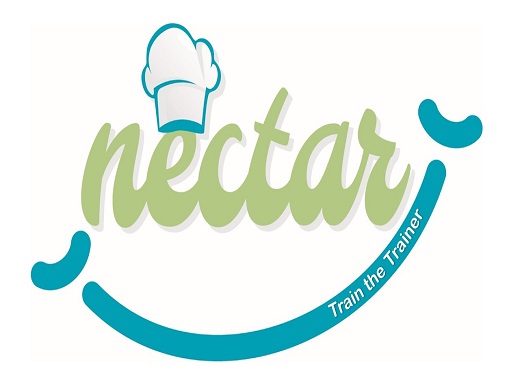
The consortium of the NECTAR project comprises of 12 partners. The logos of the respective partners in the projects are outlined below. For further information about the distinct partners, please visit the homepages of the affiliated organisations or the homepage of the nectar project (http://www.nectar-project.eu/).
The NECTAR project aims to compensate the gap identified between the skills currently offered by cooks and chefs working in hospitals, residential care and homecare and those actually demanded by healthcare institutions, private service providers and final end users in order to play a pivotal role in Primary Food Care (PFC). Based on a “culinary/clinical integrated approach”, NECTAR will deliver an EU Occupational Profile and an EU Curriculum for Chef Gastro Engineering: the adaptability of the curriculum to different contexts and countries will be tested through the implementation of five pilot courses in Italy, Austria, Portugal and Belgium.
The NOTT course aims to train all the teachers involved in the NECTAR Pilot Courses to support them to implement innovative methods when addressing the new curriculum. The course content will be presented in English only.
Introduction to the course (aims, structure, schedule, main activities and tools, learning agreement, participants’ assessment)
The Unit introduces the iMooX platform in general and the specific areas of the NOTT. The functionalities are analyzed taking into account both the ‘student’ and ‘teacher’ perspectives.
Unit 2: Background information on the project, curriculum & contextualization into a regional/ local context for VET providing
The unit will provide an introduction to the NECTAR project and to the main design tools that pilot teachers should refer to when implementing pilot courses.
Unit 3: Lesson plans
This Unit will focus on the lesson plans developed in the framework of the NECTAR project and will provide support to teachers so that they can use them effectively.
A Project Work (transversal to Unit 4 and Unit 5) should be implemented by attendants putting the lessons learnt into practice.
Unit 4: Educational and learning strategies
This Unit will focus on the Training Patterns developed in the framework of the NECTAR project and will provide support to teachers so that they can use them effectively.
A Project Work (transversal to Unit 4 and Unit 5) should be implemented by attendants putting the lessons learnt into practice.
Gefinancieerd door


This project has received funding from the Erasmus+ Program of the European Union under AGREEMENT NUMBER – 621707-EPP-1-2020-1-BE-EPPKA2-SSA
The European Commission's support for the production of this publication does not constitute an endorsement of the contents, which reflect the views only of the authors, and the Commission cannot be held responsible for any use which may be made of the information contained therein.
Als u meer wilt weten over het project, de voortgang en/of de resultaten, volg ons dan op www.nectar-project.eu of op de sociale mediakanalen LinkedIn (https://www.linkedin.com/in/nectar-project/) en Twitter (https://twitter.com/ProjectNectar).
